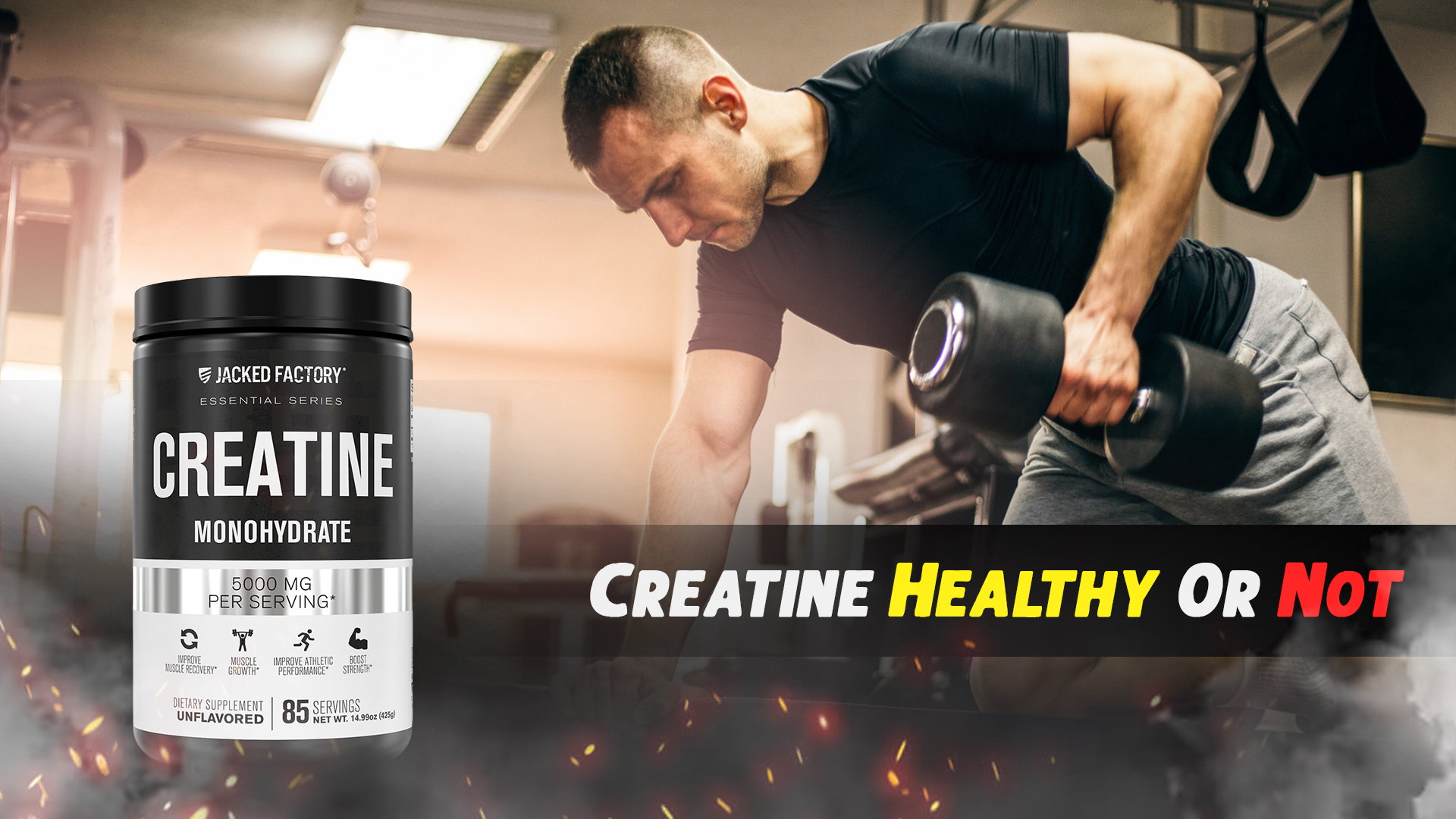Is Creatine Safe And Effective? Exploring The Evidence

Table of Contents
Creatine's Effectiveness for Muscle Growth and Strength
Creatine monohydrate is a naturally occurring compound found in muscle tissue. Its primary function is to increase the availability of adenosine triphosphate (ATP), the body's primary energy currency. This increase in ATP availability directly impacts muscle performance and growth.
Mechanisms of Action
Creatine supplementation works by increasing the stores of phosphocreatine in muscle cells. Phosphocreatine acts as a reservoir for replenishing ATP during high-intensity exercise. This leads to several key benefits:
- Increased creatine stores lead to enhanced muscle power output: This means you can lift heavier weights, run faster, and jump higher.
- Improved high-intensity exercise performance: Creatine supplementation significantly improves performance in short bursts of intense activity.
- Significant gains in lean muscle mass, especially when combined with resistance training: Creatine enhances muscle protein synthesis, leading to noticeable increases in muscle size.
- Studies showing improvements in strength and power across various populations: Research shows benefits in athletes, older adults experiencing sarcopenia (age-related muscle loss), and other individuals undertaking resistance training programs. [Insert links to reputable studies here, e.g., meta-analyses on creatine effectiveness].
Creatine's Safety Profile
Despite its widespread use, many misconceptions surround creatine's safety. Let's address some common concerns.
Common Misconceptions about Creatine Side Effects
One of the most prevalent myths is that creatine causes kidney or liver damage. Extensive research consistently refutes this claim.
- Extensive research demonstrating creatine's safety in healthy individuals: Numerous studies have shown that creatine supplementation does not harm the kidneys or liver in healthy individuals. [Insert links to peer-reviewed studies supporting creatine safety].
- Kidney function studies showing no negative impact on renal function in healthy individuals: Well-designed studies have demonstrated no adverse effects on kidney function markers in those with healthy kidneys.
- Importance of proper hydration while using creatine: Creatine does cause water retention, which is why adequate hydration is crucial. This is not the same as dehydration and does not negatively affect kidney health in healthy individuals.
- Potential mild side effects (e.g., weight gain due to water retention, gastrointestinal upset) and how to manage them: While some individuals might experience mild weight gain (due to water retention) or gastrointestinal discomfort (cramps, diarrhea), these are usually temporary and manageable.
Optimal Creatine Dosage and Usage
To maximize the benefits of creatine and minimize potential side effects, it's essential to follow an appropriate dosage regimen.
Loading Phase vs. Maintenance Phase
Many people start with a loading phase to quickly saturate their muscles with creatine. After the loading phase, a maintenance phase is used to sustain the elevated creatine levels.
- Recommended loading phase dosage (e.g., 20 grams per day for 5-7 days): This helps achieve muscle saturation more quickly.
- Recommended maintenance phase dosage (e.g., 3-5 grams per day): This amount is sufficient to maintain elevated creatine levels.
- Importance of consistent daily supplementation for optimal results: Consistent daily intake is key to achieving and maintaining the benefits.
- Role of carbohydrate and protein intake in maximizing creatine absorption: Consuming carbohydrates and protein alongside creatine can enhance absorption.
Who Should and Shouldn't Use Creatine?
Creatine supplementation is generally safe and effective for many, but certain populations need to exercise caution or avoid it altogether.
Populations that May Benefit
- Athletes: Creatine significantly enhances performance in various sports, particularly those involving short bursts of intense activity.
- Individuals with sarcopenia: Older adults can experience significant muscle growth and strength gains.
Populations that Should Avoid Creatine
- Those with pre-existing kidney conditions: Individuals with kidney problems should avoid creatine as it may put extra strain on the kidneys.
- Pregnant or breastfeeding women: There is insufficient research on the safety of creatine during pregnancy and breastfeeding.
Creatine and Other Supplements
Creatine generally interacts well with other supplements. However, it's always advisable to consult with a healthcare professional before combining multiple supplements, especially if you have any underlying health concerns or are taking medications.
Conclusion
In summary, Is Creatine Safe and Effective? The answer is a resounding yes, when used correctly. Creatine monohydrate is a safe and effective supplement for increasing muscle mass and strength, particularly when combined with resistance training. Remember the importance of proper dosage, consistent supplementation, adequate hydration, and considering your individual health conditions. If you are considering creatine, consult with your doctor or a registered dietitian before starting any new supplement regimen. Conduct further research using keywords like "Creatine safety," "Creatine effectiveness," or "Creatine dosage" to make informed decisions. Used responsibly, creatine can be a valuable tool in achieving your fitness goals.

Featured Posts
-
 Foot Lockers Results Signal Nikes Resurgence Analysts Report
May 16, 2025
Foot Lockers Results Signal Nikes Resurgence Analysts Report
May 16, 2025 -
 Extended Creditor Protection Granted To Hudsons Bay Company Until July 31st
May 16, 2025
Extended Creditor Protection Granted To Hudsons Bay Company Until July 31st
May 16, 2025 -
 The Gsw Lockdown A Student Perspective On A Close Call
May 16, 2025
The Gsw Lockdown A Student Perspective On A Close Call
May 16, 2025 -
 Andor Season 1 Streaming On Hulu Episodes 1 3 On You Tube
May 16, 2025
Andor Season 1 Streaming On Hulu Episodes 1 3 On You Tube
May 16, 2025 -
 Georgia Southwestern State University Lifts Lockdown After Campus Incident
May 16, 2025
Georgia Southwestern State University Lifts Lockdown After Campus Incident
May 16, 2025
